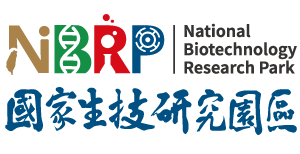-
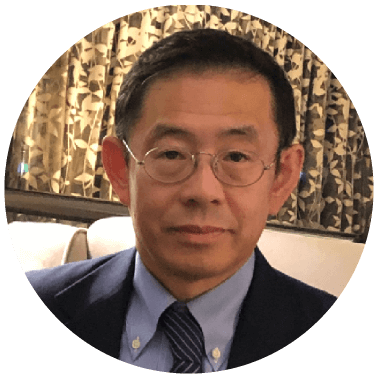 Zhiqiang An 安志強
Zhiqiang An 安志強Director, Texas Therapeutics Institute at the Brown Foundation Institute of Molecular Medicine
More Zhiqiang An 安志強
Zhiqiang An 安志強Director, Texas Therapeutics Institute at the Brown Foundation Institute of Molecular Medicine
Dr. Zhiqiang An is Professor and the Robert A. Welch Distinguished University Chair in Chemistry, Director of the Texas Therapeutics Institute, and Vice President of Drug Discovery at the University of Texas Health Science Center at Houston. His laboratory focuses on antibody drug discovery. During the last 10 years, he has advanced six drug candidates to clinical trials for diseases ranging from acute myeloid leukemia (IO-202), cancer bone metastasis (ALMB-0168), solid tumor (IO-108), spinal cord injury (ALMB-0166), COVID-19 (IGM6268), and solid tumor (PRTH-101). Previously, he served as Chief scientific Officer at Epitomics, Inc. and was Director of Biologics Research at Merck. Dr. An is an elected fellow of SIMB, ASM, AAAS, and the National Academy of Inventors (NAI). He is the recipient of the 2024 Scientific Achievement Award in Drug Discovery and Development given by the American Society for Pharmacology and Experimental Therapeutics (ASPET). Dr. An received his Ph.D. degree from the University of Kentucky and his postdoctoral training at the University of Wisconsin-Madison.
Developing Antibodies Targeting LILRB2/TREM2 in Alzheimer′s Disease
Triggering receptor expressed on myeloid cells 2 (TREM2) plays crucial roles in Alzheimer′s disease (AD) by regulating microglia migration toward, and phagocytosis of amyloid plaques. We have discovered that TREM2 functions are negatively regulated by leukocyte immunoglobulin-like receptor subfamily B member 2 (LILRB2), an inhibitory receptor bearing ITIM motifs. Genetic studies have identified both TREM2 and LILRB2 as risk factors for AD. This presentation will discuss the molecular mechanisms of TREM2/LILRB2 interaction in AD pathogenesis and engineering antibodies targeting TREM2 and LILRB2 for potential AD therapy.
-
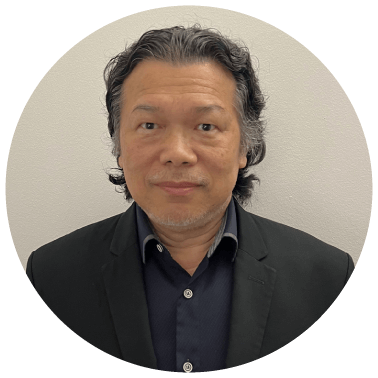 何正宏
何正宏Chief Executive Officer (CEO), AP Biosciences, INC.
More 何正宏
何正宏Chief Executive Officer (CEO), AP Biosciences, INC.
EDUCATION/TRAINING
INSTITUTION AND LOCATION DEGREE MM/YY FIELD OF STUDY Dept. of Physics, National Taiwan University, Taipei, Taiwan B.S. 1981-1985 Physics Dept. of Microbiology & Immunology, University of Virginia, Charlottesville, VA Ph.D. 1987-1993 MAKP cloning and dual-phosphorylation Bristol-Myers Squibb, Princeton, NJ Post-Doc 1993-1995 Protein kinases and G proteins DNAX Research Institute (acquired by Merck), Palo Alto, CA Post-Doc 1995-1998 Signal transduction pathways Professional experience
• 1998 - 2004 Co-founder of KaloBios Pharmaceuticals, Inc. (NASDAQ: HGEN), an antibody company with three innovative antibody drugs in clinical trials for cancer, inflammatory and anti-infectious diseases; including KB001-A, an antibody for anti-Pseudomonas infection of patients on ventilator, which was licensed to Sanofi Pasteur for $290M plus royalties. In addition, the antibody Humaneering technology developed by the founders was licensed non-exclusively to Novartis for $32M in 2006. Total of ~ $100M venture capital was raised before the company went public in Jan, 2013.
• 2005 - 2006 A founding member and VP of R&D, Multispan, Inc., a leader in G protein-coupled receptor (GPCR) specialty reagents and service provider for GPCR drug development. Dr. Jeng Her was responsible for development of the product line for more than 300 human GPCRs and establishment of a cell-based assay for GPCR compound profiling. These reagents and services had become the major revenue-generation mechanisms which brought the company to a break-even point 18 months after inception of the company.
• 2006 - 2013 Founder & CEO of ProtevoBio, Inc. ProtevoBio is a self-support, employee-owned company with a focus on antibody and protein engineering for biosimilars, bio-betters, innovative antibodies and receptor/ligand Fc fusion traps. The company has developed a fully integrated technology platform for generation and optimization of pre-clinical stage antibody/biologic drugs, including IBI302, which was licensed to Innovent Biologics (1801.HK), currently in PIII trials for wet AMD.
• 2013 – Present Founder & CEO of AP Biosciences (圓祥生技; 6945.TW), a clinical stage bispecific antibody drug developer in Taipei, Taiwan.
Granted Patents
1. Robert F Balint, Jeng-Horng Her: Reactivation-based molecular interaction sensors. Feb, 26 2008: US 7,335,478
2. Robert F Balint, Jeng-Horng Her: Methods for affinity maturation. Oct, 7 2008: US 7,432,063
3. Robert F Balint, Jeng-Horng Her: Circularly permutated, interaction-activated proteins. Jun, 9 2009: US 7,544,477
4. Helena S Mancebo, Jeng-Horng Her, Samuel X Li, Jianfu L Wang: GPCR-expressing cell lines. Aug, 24 2010: US 7,781,209
5. Peter Flynn, Kenneth Luehrsen, Robert F Balint, Jeng-Horng Her, Christopher R Bebbington, Geoffrey T Yarranton: Antibody specificity transfer using minimal essential binding determinants. Jul, 19 2011: US 7,981,843
6. Helen M Blau, Robert F Balint, Thomas S Wehrman, Jeng-Horng Her: Detection of molecular interactions by β-lactamase reporter fragment complementation. US 8,148,110
7. Helena S Mancebo, Jeng-Horng Her, Samuel X Li, Jianfu L Wang: GPCR expression vector. US 8,178,346
 Weichang Zhou
Weichang ZhouHonorary President and Senior Advisor to (CEO), WuXi Biologics
More Weichang Zhou
Weichang ZhouHonorary President and Senior Advisor to (CEO), WuXi Biologics
Weichang Zhou, Ph.D.
Executive Director of the Board
President of Global Biologics Development and Operations & Chief Technology Officer, WuXi Biologics
Dr. Weichang Zhou is Executive Director of the Board, President and Chief Technology Officer (CTO) of WuXi Biologics. With over 30 years of industry experience, Dr. Zhou provides strategic leadership to the firm as he leads a biologics development team of more than 5,000 employees supported by over 3,300 experienced scientists, including 450+ with Ph.D. degree or equivalent – recognized as one of the five largest biological development teams in the world. Dr. Zhou specializes in biologics manufacturing process development, scale-up, characterization, technology transfer, manufacturing and regulatory support.
Prior to joining WuXi Biologics in 2012, Dr. Zhou served in senior leadership positions with multiple Chemistry, Manufacturing, and Controls (CMC) teams, including as Senior Director of Commercial Cell Culture Development at Genzyme (a Sanofi company), Senior Director of Process Sciences and Engineering at PDL BioPharma, and Associate Director of Fermentation and Cell Culture at Merck.
Dr. Zhou has authored and published near 80 scientific papers and holds 9 international patents. He has delivered over 200 presentations and lectures at multiple international conferences and professional courses, and is active in organizing and chairing conferences and symposia related to the development and commercialization of vaccines and biologics. Dr. Zhou served as Chair of the Cell Culture Engineering (XIV) 2014 Conference, Biochemical Engineering (XIII) 2003 Conference, and 2004 Program of the Division of Biochemical Technology of the American Chemical Society (ACS) at the 227th ACS Spring National Meeting. Dr. Zhou was elected as an American Chemical Society fellow in 2013 and an American Institute for Medical and Biological Engineering (AIMBE) fellow in 2002. He previously served as an executive committee member of the Division of Biochemical Technology (BIOT) at the American Chemical Society between 2003 and 2014. He also served as the Division’s Program Chair (2004), Awards Chair (2005-2008), Chair-Elect (2008), Chair (2009) and Past-Chair (2010).
Dr. Zhou obtained a Ph.D. in Chemical Engineering from the University of Hannover in 1989 and conducted postdoctoral research at the German Association of Chemical Engineering and Biotechnology, Swiss Federal Institute of Technology Zurich, and the University of Minnesota.
Innovative Technologies to Expedite Global Biologics Development & Manufacturing
• Emerging trends, challenge, and opportunities of new modalities
• Recent advances and application of industry-leading technologies
• Digitalization and automation enabling more efficient biologics development & manufacturing
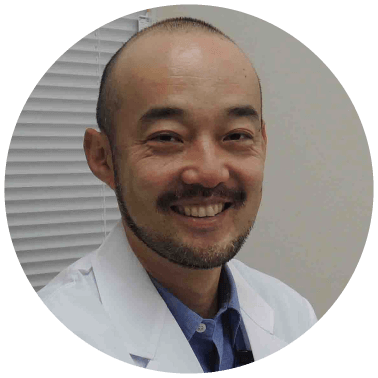 Haruhiko Kamada 鎌田 春彥
Haruhiko Kamada 鎌田 春彥Group Leader, Laboratory of Advanced Biopharmaceuticals / Center for Drug Design Research, National Institutes of Biomedical Innovation, Health and Nutrition, Japan
More Haruhiko Kamada 鎌田 春彥
Haruhiko Kamada 鎌田 春彥Group Leader, Laboratory of Advanced Biopharmaceuticals / Center for Drug Design Research, National Institutes of Biomedical Innovation, Health and Nutrition, Japan
Haruhiko Kamada (Project Leader)
Address (Office): National Institute of Biomedical Innovation, Health and Nutrition, Center for Drug Design Research,
7-6-8 Asagi, Saito,
Ibaraki, Osaka, 567-0085 (JAPAN)
Phone: +81-72-641-9811
kamada@nibiohn.go.jp
Personal Information
Name: Haruhiko KAMADA (Family name : Kamada, Horenames : Haruhiko)
Sex: Male
Date of birth : 21 April 1972
Place of birth: Osaka, Japan
Marital status: married
Nationality : Japanese
Research Interest:
Protein science, Biochemistry, Cancer therapy, Antibody engineering,
Employment:
• 2016 – present
Project Leader, National Institute of Biomedical Innovation, Osaka, Japan
• 2010-2016
Project Sub-Leader, National Institute of Biomedical Innovation, Nutrition and Health Osaka, Japan
• 2005 - 2010
Senior Researcher, National Institute of Biomedical Innovation, Osaka, Japan
• 2004 - 2005
Senior Researcher, National Institute of Health Sciences, Osaka Branch Fundamental Research Laboratories for Development of Medicine, Osaka, Japan
•2000 - 2004
Assistant Professor, Mie University School of Medicine, Mie Japan
Fellowship:
JSPS (Japan Society for the Promotion of Science) Research Fellowships for Young Scientists (1999-2000)
Education:
• Ph.D. Graduate School of Pharmaceutical Sciences, Osaka University 2000.
• M.S. in Graduate School of Pharmaceutical Sciences, Osaka University 1997.
• S.B. in Faculty of Pharmaceutical Sciences, Osaka University 1995.
Awards :
• The Academy of pharmaceutical Science and Technology, Japan, The Best Paper Award, 1999
• Pharmaceutical Research Continuous Grants, Takeda Science Foundation,2006
• XXIII ISTH Congress JSTH Asian-Pacific Scholarship, 2011
• Grand Prize in Competition for Commercialization of Drug Discovery Seeds, Osaka Bio Headquarters, 2019
Publications :
(1) Akiba H, Fujita J, Ise T, Nishiyama K, Miyata T, Kato T, Namba K, Ohno H, Kamada H , Nagata S, Tsumoto K. Development of a 1:1-binding biparatopic anti-TNFR2 antagonist by reducing signaling activity through epitope selection. Commun Biol . 6(1):987. 2023
(2) Nishiyama K, Akiba H, Nagata S, Tsumoto K, Kamada H , Ohno H. A Proximity-Induced Fluorogenic Reaction Triggered by Antibody-Antigen Interactions with Adjacent Epitopes. Angew Chem Int Ed Engl. 62(30):e202306431. 2023
(3) Suzuki K., Tajima M, Tokumaru Y, Oshiro Y, Nagata S, Kamada H , Kihara M, Nakano K, Tasuku Honjo, Akio Ohta. Anti–PD-1 antibodies recognizing the membrane proximal region are PD-1 agonists that can downregulate inflammatory diseases. Sci Immunol. 8(79):eadd4947. 2023
(4) Yamaguchi T, Hoshizaki M, Minato T, Nirasawa S, Asaka MN, Niiyama M, Imai M, Uda A, Chan JF, Takahashi S, An J, Saku A, Nukiwa R, Utsumi D, Kiso M, Yasuhara A, Poon VK, Chan CC, Fujino Y, Motoyama S, Nagata S, Penninger JM, Kamada H , Yuen KY, Kamitani W, Maeda K, Kawaoka Y, Yasutomi Y, Imai Y, Kuba K. ACE2-like carboxypeptidase B38-CAP protects from SARS-CoV-2-induced lung injury. Nat Commun. 12(1):6791.2021
(5) Urano E, Okamura T, Ono C, Ueno S, Nagata S, Kamada H, Higuchi M, Furukawa M, Kamitani W, Matsuura Y, Kawaoka Y, Yasutomi Y. COVID-19 cynomolgus macaque model reflecting human COVID-19 pathological conditions. Proc Natl Acad Sci U S A.. 118(43):e2104847118. doi: 10.1073/pnas.2104847118. 2021
(6) Akiba H, Ise T, Nagata S, Kamada H , Ohno H, Tsumoto K. Production of IgG1-based bispecific antibody without extra cysteine residue via intein-mediated protein trans-splicing. Sci Rep. 11(1):19411. 2021
(7) Inoue M, Yamashita K, Tsuji Y, Miki M, Amano S, Okumura T, Kuge K, Tone T, Enomoto S, Yoshimine C, Morita Y, Ando D, Kamada H , Mikami N, Tsutsumi Y, Tsunoda SI. Characterization of a TNFR2-Selective Agonistic TNF-α Mutant and Its Derivatives as an Optimal Regulatory T Cell Expander J Immunol. 206(8):1740-1751. 2021
(8) Kamada H , Tsutsumi Y, Yoshioka Y, Yamamoto Y, Kodaira H, Tsunoda S, Okamoto T, Mukai Y, Shibata H, Nakagawa S, Mayumi T. Design of a pH-sensitive polymeric carrier for drug release and its application in cancer therapy. Clin Cancer Res. 2004 ;10(7):2545-50.
(9) Kamada H , Tsutsumi Y, Sato-Kamada K, Yamamoto Y, Yoshioka Y, Okamoto T, Nakagawa S, Nagata S, Mayumi T. Synthesis of a poly(vinylpyrrolidone- co-dimethyl maleic anhydride) co-polymer and its application for renal drug targeting. Nat Biotechnol. 2003 Apr;21(4):399-404.
(10) Kamada H, Tsutsumi Y, Yamamoto Y, Kihira T, Kaneda Y, Mu Y, Kodaira H, Tsunoda SI, Nakagawa S, Mayumi T. Antitumor activity of tumor necrosis factor-alpha conjugated with polyvinylpyrrolidone on solid tumors in mice. Cancer Res. 2000 Nov 15;60(22):6416-6420.
Title:Technology to generate highly functional antibodies for antibody drug development
〈Abstract〉
Antibodies are known as essential molecules that have high affinity for various molecules and play a critical role in the defense mechanisms of organisms against foreign factors such as viruses and bacteria. Antibodies are characterized not only by their affinity, but also by their high specificity for target molecules, making them prime candidates for the development of drugs with clear mechanisms of action. As a result, they are currently used in the treatment of several refractory diseases. However, the mere acquisition of binding affinity is not sufficient to create antibodies with significant pharmaceutical value. In other words, the desired properties of therapeutic antibodies involve the regulation of the function of the target molecule, thus necessitating the creation of functional antibodies with properties that demonstrate therapeutic efficacy.
To develop such functional antibodies, it is essential not to view the binding between antibodies and drug targets as a vague interaction. Instead, it is crucial to view the structure of drug targets as separate entities and focus on creating antibodies that bind to functional epitopes, known as functional epitope-targeting antibodies. Therefore, we have been working to create an "Epitope Normalized Antibody Panel (ENAP)" consisting of antibodies capable of binding to different functional epitopes on the target molecule, thereby comprehensively covering epitopes on the drug target. By combining this antibody panel with experimental systems capable of evaluating antibody function, we have sought to efficiently acquire antibodies with high pharmaceutical value. Through the development of this antibody acquisition technology, we have demonstrated that prioritizing functional epitopes over affinity, which has traditionally been emphasized in existing antibody drug development, allows for the rapid and rational development of antibody drugs.
In this presentation, we will discuss our research on the development of therapeutic antibodies targeting the tumor necrosis factor receptor family as an example of the development of antibody drug candidates useful in the treatment of disease.
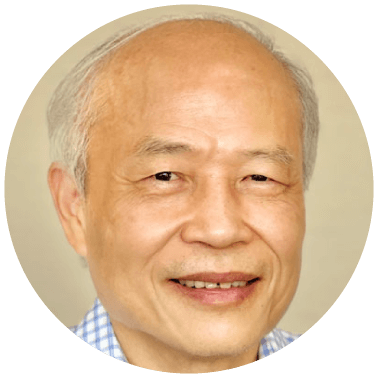 Ming-Tain Lai 賴明添
Ming-Tain Lai 賴明添Chief Scientific Officer (CSO), OBI Pharma, INC.
More Ming-Tain Lai 賴明添
Ming-Tain Lai 賴明添Chief Scientific Officer (CSO), OBI Pharma, INC.
Ming-Tain Lai
Chief Scientific Officer
OBI Pharma Inc.,
現職 (Current Position)
Chief Scientific Officer, OBI Pharma Inc.,
經歷 (Experience)
• OBI Pharma浩鼎生技 (2019 - present)
Lead R&D teams to develop clinical candidates of vaccines, monclonal antibodies, antibody drug conjugates (ADC), and CAR T cell therapies. He and his team advanced several candidates into clinical trials.
• Merck Sharp & Dohme默沙東 (1995-2019)
During his tenure at Merck, he and his teams have identified 14 pre-clinical candidates for further development and 12 of them entered clinical trials. One of the clincal candidates completed Ph 3 trials and was approved by FDA in 2018.
學歷 (Education)
• Ph.D. University of Minnesota (1987–1992)
• Post-doctoral study. Massachusetts Institute of Technology (1992– 1995)
演講題目 (Title)
OBI-992: An Anti-TROP2 ADC With Distinct Properties
英文摘要 (Abstract)
TROP2, a transmembrane glycoprotein highly expressed on epithelial cancers, has emerged as an attractive target for the development of antibody-drug conjugate (ADC). Datopotamab deruxtecan (Dato-DXd), a TROP2 ADC, has been submitted to FDA for approval in nonsquamous non–small cell lung cancer.
R4702 is a novel TROP2 antibody with a different binding epitope from Datopotamab. OBI-992 is a TROP2-targeting ADC, which is derived from the conjugation of R4702 with a topoisomerase I inhibitor, exatecan, via an enzyme-cleavable linker. A PK/PD study in tumor-bearing mice revealed that OBI-992 exhibited higher tumor exposure of free payload than Dato-DXd, resulting in a better antitumor efficacy. In vitro cytotoxicity testing demonstrated that OBI-992 had lower toxicity in differentiating neutrophils and THP-1 cells compared to Dato-DXd, suggesting that OBI-992 may cause less off-target toxicity. Toxicokinetics of OBI-992 in cynomolgus monkeys showed that the systemic exposure of ADC was similar to that of total antibody. The highest non-severely toxic dose (HNSTD) was determined to be 60 mg/kg.
In various CDX and PDX models, a single dose of OBI-992 at 3 or 10 mg/kg exhibited remarkable antitumor efficacy. The antitumor efficacy of OBI-992 surpassed that of datopotamab Dato-DXd across different CDX and PDX models. OBI-992 demonstrated a bystander killing effect as OBI-992 was able to kill TROP2-negative xenografts in the presence of nearby TROP2-positive cells. Furthermore, significant synergistic effect with the combination of OBI-992 with PARP inhibitors was observed. OBI-992 exhibits remarkable antitumor efficacy and a favorable safety profile warranting further studies in the clinical setting.
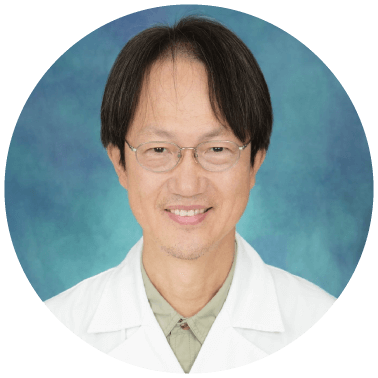 Wuh-Liang Hwu 胡務亮
Wuh-Liang Hwu 胡務亮Professor, Department of Medical Genetics and Pediatrics,National Taiwan University Hospital
More Wuh-Liang Hwu 胡務亮
Wuh-Liang Hwu 胡務亮Professor, Department of Medical Genetics and Pediatrics,National Taiwan University Hospital
CURRENT POSITIONS
College of Medicine, Pediatrics, National Taiwan University, Taipei, Taiwan Professor --present Department of Medical Genetics and Pediatrics, National Taiwan University Hospital, Taipei, Taiwan Attending Physician --present Department of Pediatrics, National Taiwan University Hospital Professor --present Department of Medical Genetics, National Taiwan University Hospital Attending Physician --present EDUCATION
National Taiwan University Institute of Molecular Medicine Ph.D. 1997 National Taiwan University College of Medicine M.D. 1984 National Taiwan University PhD National Taiwan University Medical MD CAREER AND EXPERIENCE
Department of Medical Genetics, National Taiwan University Hospital Director 2006-2012 Department of Pediatrics, National Taiwan University Hospital Associated Professor 2005-2010 Department of Pediatrics, National Taiwan University Hospital Assistant Professor 2002-2005 College of Medicine, National Taiwan University Hospital Assistant Professor 1996-2002 Department of Pediatrics, National Taiwan University Hospital Lecturer 1993-1996 Department of Genetics, Johns Hopkins University Postdoctoral Fellow 1989-1990 Department of Pediatrics, National Taiwan University Hospital Residency 1986-1989 Department of Pediatrics, National Taiwan University Hospital Professor 2010- Department of Medical Genetics, Mayo Clinic, Rochester, United States Visiting Scientist 2000- Department of Medical Genetics and Pediatrics, National Taiwan University Hospital Attending Physician 1990- Department of Genetics, Johns Hopkins University fellowship Department of Medical Genetics, Mayo Clinic Visiting Scientist 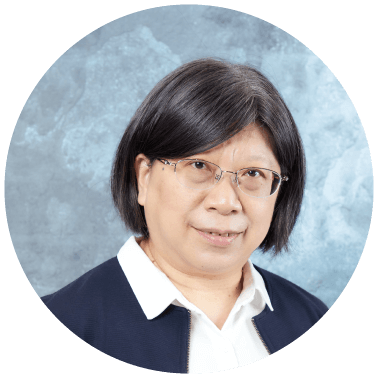 Shu-Jen Chen 陳淑貞
Shu-Jen Chen 陳淑貞Chief Scientific Officer (CSO), AnHorn Medicines, INC.
More Shu-Jen Chen 陳淑貞
Shu-Jen Chen 陳淑貞Chief Scientific Officer (CSO), AnHorn Medicines, INC.
Shu-Jen Chen
Chief Scientific Officer
AnHorn Medicines
現職 (Current Position)
Chief Scientific Officer, AnHorn Medicines
經歷 (Experience)
• Co-founders and CSO, ACT Genomics
• Associate Professor, Chang Gung University
• In Vitro Pharmacology Group Head, Taigen Biotech
學歷 (Education)
• Ph.D. in Biochemistry, Virginia Commonwealth University
• MS in Biochemistry, National Taiwan University
• BS in Pharmacy, Taipei Medical College
演講題目 (Title)
Degrader-Antibody Conjugates: Emerging Modality for Tissue-Specific Targeted Therapy
英文摘要 (Abstract)
Degrader-antibody conjugates (DACs) represent a promising class of therapeutics that integrate the specificity of monoclonal antibodies with the potent protein-degrading capabilities of small molecule degraders. This novel approach enables the selective degradation of disease-causing proteins, offering a unique strategy for targeted therapy.
DACs have shown considerable potential in preclinical studies, demonstrating the ability to target a variety of cancer-associated proteins that are challenging to inhibit using traditional approaches. By inducing protein degradation, DACs can effectively disrupt oncogenic pathways and inhibit tumor growth.
One of the key advantages of DACs is their ability to achieve targeted protein degradation within specific tissues, minimizing off-target effects and reducing systemic toxicity. This precision targeting is particularly valuable in the treatment of cancers where traditional therapies have limited efficacy or significant side effects.
Ongoing clinical trials are evaluating the safety and efficacy of DACs in various cancer types, underscoring the growing interest and potential of this innovative therapeutic modality. Continued research and development in this area hold promise for expanding the therapeutic landscape and improving outcomes for patients with cancer.
 Pan-Chyr Yang 楊泮池
Pan-Chyr Yang 楊泮池Academician, Academia Sinica / Professor, Department of Internal Medicine, National Taiwan University
More Pan-Chyr Yang 楊泮池
Pan-Chyr Yang 楊泮池Academician, Academia Sinica / Professor, Department of Internal Medicine, National Taiwan University
現職 (Current Position)
• Academician, Academia Sinica
• Professor, Department of Internal Medicine, College of Medicine, National Taiwan University
經歷 (Experience)
• President, National Taiwan University
• Chairman and Member of the permanent committee, Committee on Medical Science Education, Ministry of Education, ROC
• Superintendent, National Taiwan University Cancer Center
• Committee on Medical Science Education, Ministry of Education, ROC
• Professor, Graduate Institute of Biomedical Electronics and Bioinformatics, National Taiwan University
• Dean, College of Medicine, National Taiwan University
• Distinguished Professor and Chair Professor, National Taiwan University
• Director, NTUH National Clinical Trial and Research Center
• Vice Superintendent, National Taiwan University Hospital
• President, Taiwan Society of Pulmonary and Critical Care Medicine
• Director, Advisory Office, Ministry of Education, ROC
• Associate Dean for Academic Affairs, College of Medicine, National Taiwan University
• Adjunct Investigator, President’s Lab., National Health Research Institute
• Joint Appointment, Institute of Biomedical Sciences, Academia Sinica
• Chairman, Department of Internal Medicine, National Taiwan University Hospital
• Professor, Department of Internal Medicine, College of Medicine, National Taiwan University
• Director/Co-director, National Research Program for Biopharmaceuticals
• Adjunct Associate Researcher and Researcher, Institute of Biomedical Sciences, Academia Sinica
• Attending Physician, Department of Internal Medicine, National Taiwan University Hospital
學歷 (Education)
• Ph.D., Graduate Institute of Clinical Medicine, National Taiwan University
• M.D., College of Medicine, National Taiwan University,
演講題目 (Title)
• Perspectives of Precision Lung Cancer Control in Taiwan
 Andrew H.-J. Wang 王惠鈞
Andrew H.-J. Wang 王惠鈞Academician, Academia Sinica
More Andrew H.-J. Wang 王惠鈞
Andrew H.-J. Wang 王惠鈞Academician, Academia Sinica
RESEARCH
Our laboratory is specialized in structural proteomics, and uses it to study the functions of important bio-systems. Our primary methodologies are high-throughput synchrotron protein crystallography, proteomics as well as bioinformatics. Other advanced technologies, e.g., NMR spectroscopy, SAXS, EM, biophysical or immunological methods are used if necessary. The following domains are our primary interests:
1. Structural enzymology: Several enzymes as potential targets for drug discovery are under investigation. For developing new antibiotics, we focused on prenyltransferases. For anticancer agents, we analyzed phosphatases (in signal transduction). Studies of potential targets for diabetics and Alzheimer’s disease are also in progress.
2. Protein-DNA interactions: Besides investigating the effect of small drug molecules in gene transcription, we further devoted to another new gene regulation mechanism by DNA mimic proteins.
3. Causative microorganisms and cancer: In these issues, we focused on the regulation of bacterial anti-drug gene and biofilm as well as the cancer-related kinases and phosphatases.
4. Development of potential pharmaceutical proteins: We also involved in the protein drug discovery by investigating membrane proteins, antigens and antibodies.
DEGREES AND POSITIONS HELD
• 1974 Ph.D., University of Illinois at Urbana-Champaign
• 1970 M.S. , National Taiwan University
• 1967 B.S., National Taiwan University
• 2019 – present Visiting Scholar, Institute of Biological Chemistry, Academia Sinica
• 2019 – present Visiting Chair, Biomedical Translation Research Center
• 2017 – 2020 Director, Program for Translational Innovation of Biopharmaceutical Development – Technology Supporting Platform Axis
• 2017 – 2019 Acting CEO, National Biotechnology Research Park
• 2016 – 2019 Distinguished Visiting Chair, Institute of Biological Chemistry, Academia Sinica
• 2016 – 2019 Co-Chair, Taiwan Protein Project
• 2015 – 2016 Vice President, Academia Sinica
• 2011 – 2015 Distinguished Research Fellow , Institute of Biological Chemistry, Academia Sinica
• 2006 – 2011 Distinguished Research Fellow and Vice President (Academic), Academia Sinica
• 2000 – 2006 Distinguished Research Fellow and Director, Institute of Biological Chemistry, Academia Sinica
• 1992 – 1999 Adjunct Research Fellow, Institute of Molecular Biology, Academia Sinica
• 1988 – 1996 Advisory Board Members, Institute of Molecular Biology, Academia Sinica
• 1988 – 1989 Professor, University of Illinois at Urbana-Champaign
• 1985 – 1988 Senior Research Scientist, MIT
• 1982 – 1985 Principal Research Scientist, MIT
• 1980 – 1982 Research Scientist, MIT
• 1974 – 1980 Postdoctoral Research Associate , MIT
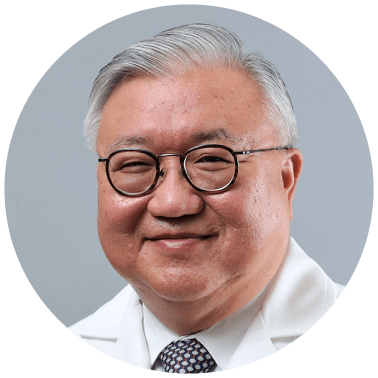 Yun Yen 閻 雲
Yun Yen 閻 雲Joint Appointment Research Fellow, Institute of Biological Chemistry, Academia Sinica
More Yun Yen 閻 雲
Yun Yen 閻 雲Joint Appointment Research Fellow, Institute of Biological Chemistry, Academia Sinica
RESEARCH
1. Clinical Oncology,
2. Cancer drug development,
3. Translational medicine
DEGREES AND POSITIONS HELD
• 1985 – 1988 Ph.D., Pathology and Cell Biology, Thomas Jefferson University
• 1975 – 1982 MD, School of Medicine, Taipei Medical College
• 2014 – present Joint Appointment Research Fellow, Institute of Biological Chemistry, Academia Sinica
• 2011 – present The Ph.D. program for Cancer Biology and Drug Discovery ,Professor, Taipei Medical University
• 2011 – 2017 President, Taipei Medical University
• 2003 – 2011 City of Hope, National Medical Center, Professor
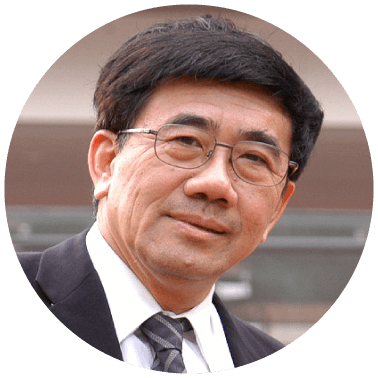 John Yu 游正博
John Yu 游正博Director, The Institute of Stem Cell and Translational Cancer Research (ISCTCR), Chang Gung Memorial Hospital (CGMH)
More John Yu 游正博
John Yu 游正博Director, The Institute of Stem Cell and Translational Cancer Research (ISCTCR), Chang Gung Memorial Hospital (CGMH)
Research
• Stem cell biology 幹細胞生物學
• Regulation of hematopoiesis 造血調控
• Tumorigenesis cell 腫瘤細胞
Experience
•2002 – 2005 Distinguished Research Fellow & Director, Institute of Zoology, Academia Sinica.
•2002 – 2013 Chief, Stem Cell Program, and Distinguished Research Fellow, The Genomics Research Center, Academia Sinica.
•2005 – 2009 President, Taiwan Society for Stem Cell Research
•2005 – 2009 Distinguished Research Fellow & Director, Institute of Cellular & Organismic Biology, Academia Sinica
•2009 –2013 Distinguished Research Fellow, Institute of Cellular & Organismic Biology, Academia Sinica
•2013 – present Distinguished Visiting Fellow, Institute of Cellular & Organismic Biology, Academia Sinica
Education
•M.D., 1968, National Taiwan University
•Ph.D. in Biophysics, 1974, University of Chicago
•Fellow in Biology, 1974-77, The Biological Laboratories, Harvard University
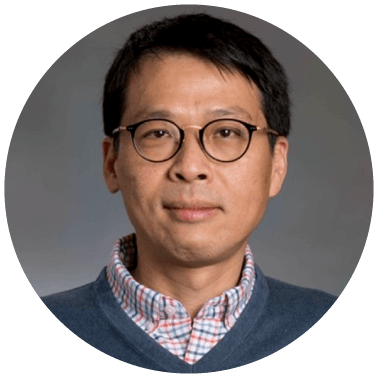 Chih-Hao Lee 李志浩
Chih-Hao Lee 李志浩Director, Genomics Research Center, Academia Sinica
More Chih-Hao Lee 李志浩
Chih-Hao Lee 李志浩Director, Genomics Research Center, Academia Sinica
EDUCATION AND POSITIONS HELD:
• B.S., Chemical Engineering, National Tsing-Hua University, Taiwan, 1989
• Ph.D., University of Minnesota,USA, 1999
• Postdoctoral fellow, Salk Institute, 1999-2004
• Assistant Professor, Harvard School of Public Health, 2004-2010
• Associate Professor, Harvard School of Public Health, 2010-2015
• Professor, Harvard School of Public Health, 2015-2023
• Distinguished Professor, Genomics Research Center, Academia Sinica, 2023-present
• Director, Genomics Research Center, Academia Sinica, 2023-present
HONORS:
• The Scientist Development Grant awarded by the American Heart Association, 2006
• The Mentoring Award by the HSPH graduating class of 2011, 2011
• Armen H. Tashjian Jr. Award for Excellence in Endocrine Research, 2012
RESEARCH INTERESTS:
The main research interest of the lab is to understand bioenergetic controls of physiological processes that impact metabolic health. Approaches employed include a variety of tools in molecular/cell biology, biochemistry and metabolomics as well as mouse models of obesity and related metabolic diseases. Current projects, with an emphasis on the crosstalk between metabolic and immune signaling, focus on the following areas:
• Molecular basis of endurance exercise-induced metabolic adaptation
• Mitochondrial dynamics in liver metabolism and feeding/fasting responses
• Circadian/metabolic rhythm and metabolites mediated inter-organ communication
• Mitochondrial bioenergetics in inflammatory activation and resolution of immune cells




